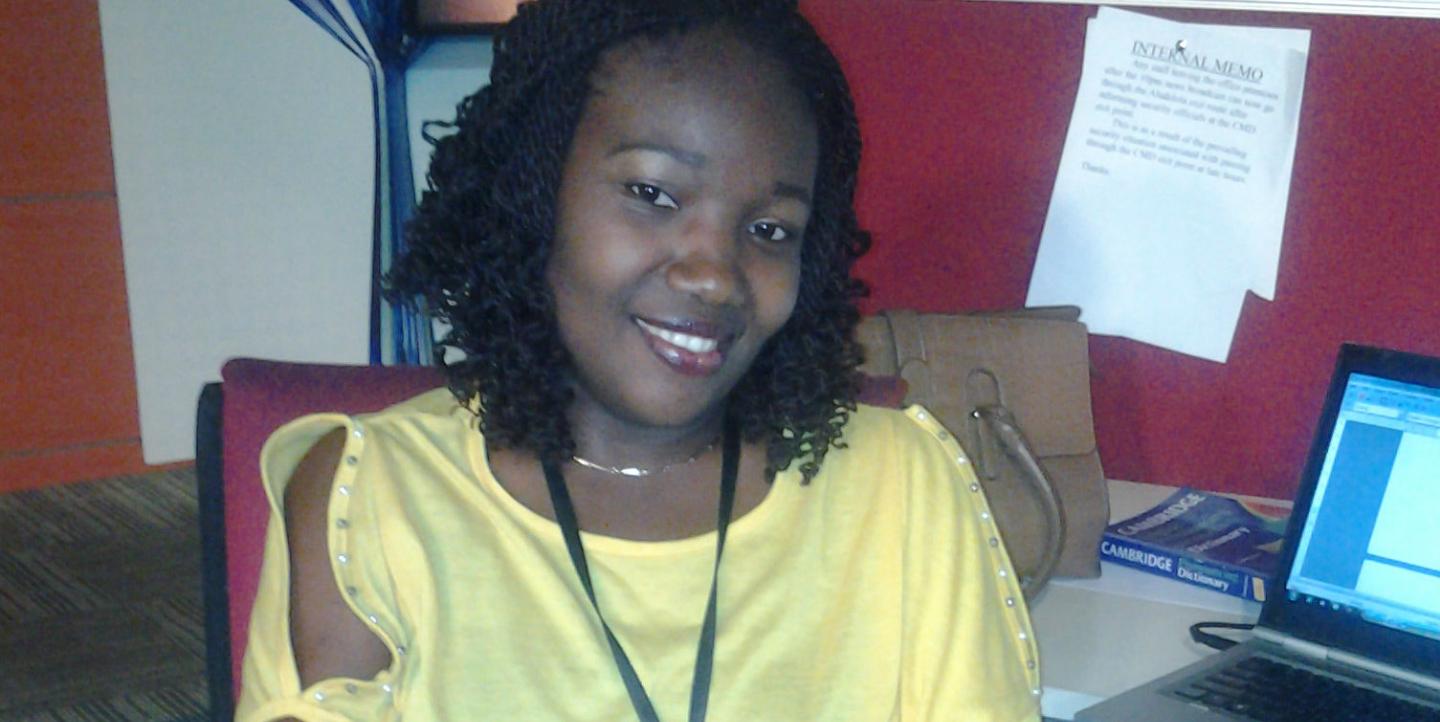Each month, IJNet features an international journalist who exemplifies the profession and has used the site to further his or her career. If you would like to be featured, email a short bio and a paragraph about how you have used IJNet here.
Journalist of the month Christy Ejiogu dedicates herself to telling stories about African women overcoming obstacles of all kinds.
From women escaping the thralls of domestic violence to how a Nigerian entrepreneur worked her way to the top, Ejiogu has produced a series of stories for the TVC News program "A Woman's World" that highlight the strength of women in her home country of Nigeria.
After recently being promoted to a senior programs producer, Ejiogu had to broaden her beat. Although she remains committed to women's issues, she now produces TVC Trends, a show that examines popular topics on social media. Ejiogu also helps develop new program concepts that will resonate with TVC's audience.
Below, we talk to Ejiogu about tough stories she's covered — including Boko Haram's abduction of more than 200 schoolgirls from Chibok, Nigeria — awards she's won and her advice for young journalists.
IJNet: How did you become passionate about women’s issues?
Ejiogu: I have always had the urge to project the voice of the African woman and to correct the impression that she is a victim, subdued and voiceless. This passion grew when I [began] at TVC News as a producer and was assigned the women's show, "A Woman's World."
Throughout the course of producing this program, I have come across all sorts of women stories ranging from rape, harmful cultural practices, gender-based violence, etc. One thing I always do with the stories I produce is bring out the positive aspects. Although this is quite challenging, it is not impossible. For instance, when I tell a story about harmful cultural practices, I always include efforts that have been put in to end it and women who have gone beyond being victims of these practices to making the best out of their lives and helping other women do same.
The desire to tell these positive stories of African women breaking glass ceilings and challenging stereotypes is what keeps [my] passion going.
Tell us about the most difficult story you produced. What was it about?
Every story is unique and has its own challenges. One I would describe as difficult — not technically difficult but emotionally difficult —was a special I did on domestic violence. I interviewed women who were victims. One of the women was set ablaze by her fiancé, and she [would have been] disfigured for life, but she was able to raise enough money for plastic surgery. Another one was beaten so much that she couldn't talk again because she was hit hard on her throat. She had to communicate her ordeal by writing. It was really hard talking to these women because the reality of gender-based violence hit home even more.
Another story was a special I did with the mothers of the missing Chibok girls. It was heartbreaking watching them cry their hearts out for the rescue of their daughters.
How has IJNet helped you?
IJNet is a one-stop shop for fellowships and training opportunities. Last October, I responded to an [opportunity] on IJNet for a Thomson Reuters course called, "Reporting Slavery and Trafficking." I was among the lucky 12 participants from different countries for the weeklong course. It was a rewarding experience and I learned so much during that training. I also made friends with the other journalists who attended the course, and we are still in contact.
I also recently saw an [opportunity for] the Mohammed Amin Africa Media Awards. I [entered] one of the categories, and I was invited as a finalist to Kenya and won in the Best Magazine Programme Category. (Editor's note: See Christy's winning piece on the missing Chibok girls above.)
What is your advice for young journalists?
Only get into the profession if you have a passion for it, that's what will keep you. [Paraphrasing] the words of late journalist Michael Hastings, mainly you really have to love writing and reporting like it's more important to you than anything else in your life. Finally, learn to embrace rejection as part of the gig. Keep writing, pitching and reading.
Main image of Christy Ejiogu courtesy of the journalist.


